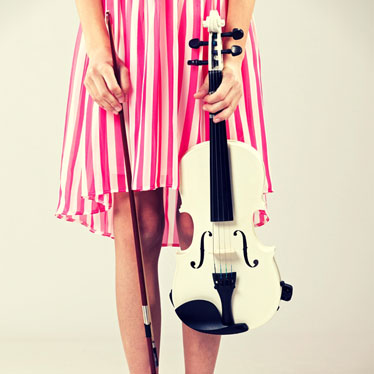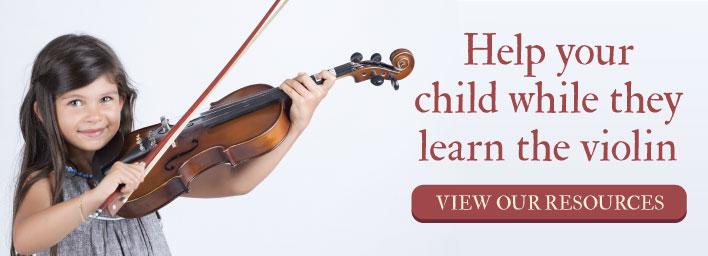Should I Pay For Private Violin Lessons For My Child?

Much has been argued recently concerning the benefits of music education for young children. And although it’s still being debated whether or not learning to play a musical instrument will actually increase your IQ, there’s absolutely no question about the advantages music instruction provides in the cognitive, physical, and social development of a child. Therefore, many parents wonder if they should pay for private violin lessons; they basically want to know if the investment will be worth the efforts.
The violin is timeless instrument that yields itself to any music genre. As a demanding stringed instrument, children develop upper body strength and good posture while learning to play it, and the violin sounds great alone or in an ensemble. However, when you’re determining if private lessons would be beneficial for your child, there are a few factors to consider first.
We all learn in different ways and at different paces. Your child’s progress in any subject is relative to the learning styles employed for instruction, and this is also true for learning the violin. And although there are many options available to parents who want to introduce their children to music, you should first consider your child’s level of enthusiasm and learning styles before making a decision about private violin lessons. Therefore, this list of considerations can help you make the right choice for your budding musician.
Age and Comprehension Level
These aspects are important for determining whether violin lessons will benefit your child. Students who are brand new to the violin, or who are under the age of five will indeed benefit from private instruction, but as a parent, you may want to look into the many online course available for young children.
Online courses are reasonably priced and many are geared toward kids who are learning music basics, such as timing and music notation. They often feature fun, interactive games that help emphasize the concepts and build tonal recognition. Even without an actual violin, many of these courses teach music fundamentals, which are an essential part of building improved math and reading comprehension skills.
If however your child has shown an aptitude in his or her music group at school, or in an online course, paying for private violin lessons is a great way to enhance his or her progress and develop new techniques and abilities.
Learning Style
Learning to play a musical instrument is one of those skills that combine all three standard learning techniques: auditory, visual, and hands-on (kinesthetic) applications. Therefore, music instruction is very adaptive to a child’s personal learning preferences.
However, often times, a class environment is too distracting. There are many other students and it can be difficult for some children to focus on specifics. If this is the case for your child, introducing weekly or daily violin lessons may make all the difference. The one-on-one attention provided in a private lesson setting offers concentrated instruction that is beneficial for many students.
Other Considerations
You may also want to consider your child’s level of enthusiasm for taking violin lessons. If your son or daughter isn’t very interested in taking a private course, it won’t be very easy for the instructor to orchestrate progress. In this case, a group setting like a string ensemble or other school class may be your best option. Many students flourish in a group setting, so you may want to consider private lessons as a summer activity only.
You’ll also need to account for the number of private instructors in your area. You can speak to your local violin dealer or a school instructor about who is available for scheduling private lessons. If you live in an area where the only teacher is over 30 miles away and booked for the next 10 months, you might want to look into other options.
Deciding whether or not to pay for private violin lessons is a personal choice, but with the right information, you can determine if they’ll be an asset to your child and worth the expense, or the opposite. Either way, encouraging and supporting a musical education in any form will offer your child advantages in building lifelong success.


